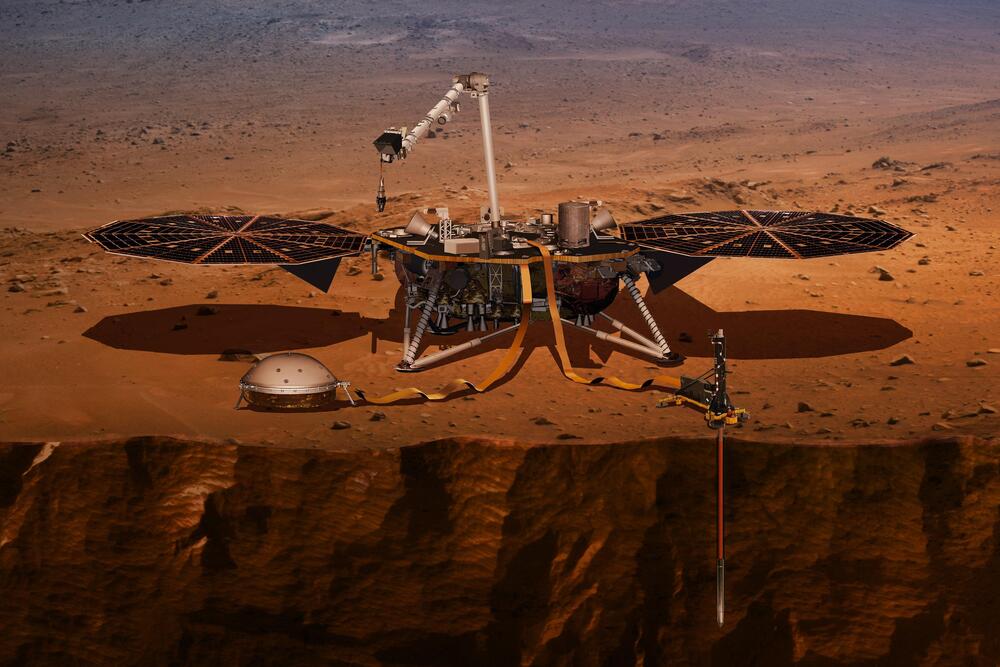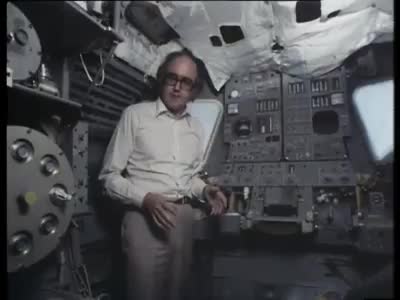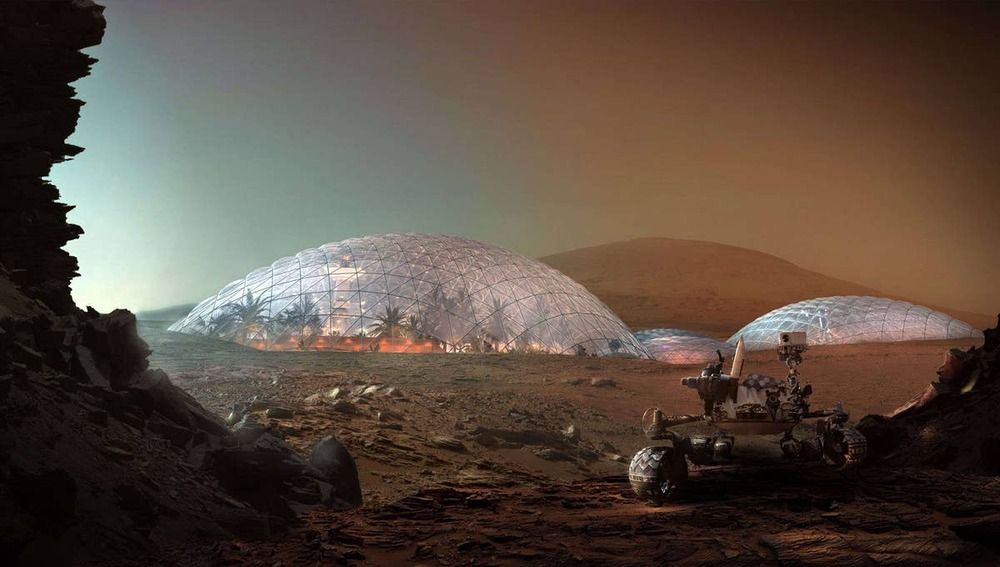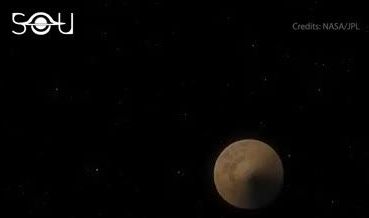NASA has finally given up on heat probe instrument on it Mars surface lander. Maybe Mark Watney will eventually find a way to fix it!
NASA has finally given up on the heat probe instrument on its Mars surface lander.

Circa 2019 😃
The La Moto Volante from French company Lazareth demonstrated its first stable hover. NASA’s helicopter that will fly on Mars has passed its flight tests. And Boston Dynamics’ upgraded Handle robot is a champ at warehouse Tetris.
CNET playlists: https://www.youtube.com/user/CNETTV/playlists.
Download the new CNET app: https://cnet.app.link/GWuXq8ExzG
Like us on Facebook: https://www.facebook.com/cnet.
Follow us on Twitter: https://www.twitter.com/cnet.
Follow us on Instagram: http://bit.ly/2icCYYm

# OnThisDay 1979: On the 10th anniversary of the first moon landing, James Burke went to NASA, to reflect on the heart-stopping minutes preceding “The eagle has landed.”

On the path to writing his Ph.D. dissertation, Lucio Milanese made a discovery—one that refocused his research, and will now likely dominate his thesis.
Milanese studies plasma, a gas-like flow of ions and electrons that comprises 99 percent of the visible universe, including the Earth’s ionosphere, interstellar space, the solar wind, and the environment of stars. Plasmas, like other fluids, are often found in a turbulent state characterized by chaotic, unpredictable motion, providing multiple challenges to researchers who seek to understand the cosmic universe or hope to harness burning plasmas for fusion energy.
Milanese is interested in what physicist Richard Feynman called “the most important unsolved problem of classical physics”—turbulence. In this case, the focus is plasma turbulence, its nature and structure.
Over the past decade or so, deep neural networks have achieved very promising results on a variety of tasks, including image recognition tasks. Despite their advantages, these networks are very complex and sophisticated, which makes interpreting what they learned and determining the processes behind their predictions difficult or sometimes impossible. This lack of interpretability makes deep neural networks somewhat untrustworthy and unreliable.
Researchers from the Prediction Analysis Lab at Duke University, led by Professor Cynthia Rudin, have recently devised a technique that could improve the interpretability of deep neural networks. This approach, called concept whitening (CW), was first introduced in a paper published in Nature Machine Intelligence.
“Rather than conducting a post hoc analysis to see inside the hidden layers of NNs, we directly alter the NN to disentangle the latent space so that the axes are aligned with known concepts,” Zhi Chen, one of the researchers who carried out the study, told Tech Xplore. “Such disentanglement can provide us with a much clearer understanding of how the network gradually learns concepts over layers. It also focuses all the information about one concept (e.g., “lamp,” “bed,” or “person”) to go through only one neuron; this is what is meant by disentanglement.”



Circa 2018
“Vast, echoing and God-like.” That is how T.E. Lawrence, the British archaeologist and army officer who inspired the 1962 film “Lawrence of Arabia,” described Wadi Rum.
As you approach the wind-swept mountains that fiercely jut out of the burnt orange sand in Jordan’s largest desert, it’s easy to see what he meant. The landscape here is like something from another world.
So it’s perhaps no surprise that a hotel in Wadi Rum has just opened a dramatic Martian Experience in the heart of this wilderness, which lets visitors feel as though they have landed on the Red Planet.

Circa 2020
Unreal and beyond most of our trippiest dreams, the city of Dubai is a living, breathing sci-fi movie—firefighters in jetpacks, anyone? Now try adding an entire Martian city concept to that.
The United Arab Emirates is on the same wavelength as Elon Musk when it comes to colonizing Mars. They want an entire human population on the Red Planet within the next century. Architects from Bjarke Ingels Group were asked to design Mars Science City, a prototype for what is going to turn into a hyper-futuristic lab for the Mohammed Bin Rashid Space Center (MBRSC), which will keep developing space tech that will allow humans to stay alive on a frozen planet almost 80 million miles (40 on a good day) from Earth.
